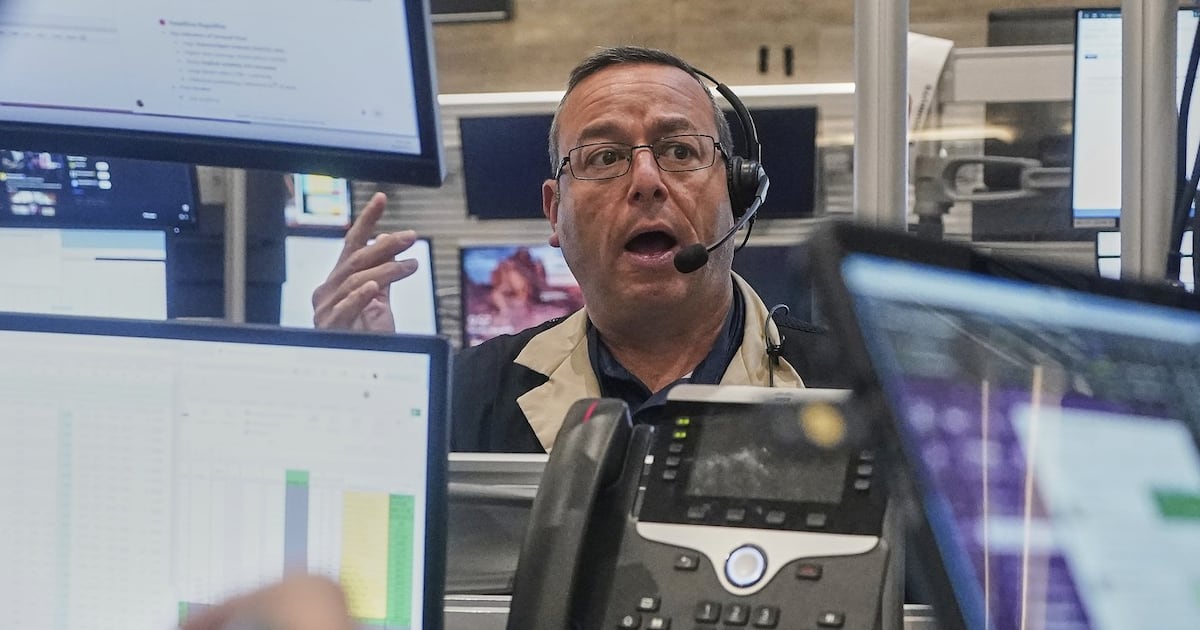BANGKOK — World shares were mixed on Monday as investors watched for further developments after a U.S. court ruled against U.S. President Donald Trump’s sweeping higher tariffs.
U.S. markets were to remain closed on Monday for the Labor Day holiday. The futures for the S&P 500 and the Dow Jones Industrial Average edged 0.1 per cent higher.
The U.S. Court of Appeals for the Federal Circuit ruled Friday that Trump went too far when he declared national emergencies to justify imposing sharply higher import taxes on almost every country on earth.
The ruling largely upheld a May decision by a specialized federal trade court in New York. But the 7-4 appeals court decision tossed out a part of that ruling striking down the tariffs immediately, allowing the administration time to appeal to the U.S. Supreme Court.
European markets opened higher, with Germany’s DAX up 0.5 per cent to 24,018.29 and the CAC 40 in Paris rising 0.4 per cent to 7,735.88.
Britain’s FTSE 100 added 0.3 per cent to 9,212.78.
In Asian trading, Hong Kong’s Hang Seng jumped 2.2 per cent to 25,617.42, while the Shanghai Composite index added 0.5 per cent to 3,875.53.
A government survey released Saturday showed China’s factory activity improved marginally in August, with the purchasing managers index, or PMI, issued by the National Statistics Bureau rising to 49.4 from 49.3 in July. The survey is on a scale of 0 to 100 where 50 marks the cutoff for expansion.
Another, private sector survey called the RatingDog China General Manufacturing PMI showed the general PMI at 50.5 last month, up from 49.4 in July. Averaging the two surveys yields a PMI of 49.9, suggesting some resilience in the manufacturing sector despite U.S. tariffs of over 50 per cent on Chinese goods, Zichun Huang of Capital Economics said in a commentary.
China and the U.S. are still negotiating over a broad trade agreement.
“The PMIs suggest that China’s economy accelerated last month, thanks to faster growth across manufacturing and services. But we don’t see much upside over the rest of the year,” Huang said.
Japan’s Nikkei 225 index fell 1.2 per cent to 42,188.79, while the Kospi in South Korea shed 1.4 per cent to 3,142.93.
Shares also fell in Australia, with the S&P/ASX 200 losing 0.5 per cent to 8,924.70.
Taiwan’s benchmark lost 0.7 per cent and India’s Sensex gained 0.7 per cent.
Shares sank 1.2 per cent in Jakarta after Indonesia’s president, Prabowo Subianto, pledged Sunday to revoke lawmakers’ perks and privileges, to try to ease public fury after nationwide protests left six people dead. It was a rare concession in response to mounting public anger.
On Friday, Wall Street closed out another winning month though benchmarks ended below their latest all-time highs.
The S&P 500 fell 0.6 per cent a day after climbing to a record high, ending the week at 6,460.26. The benchmark index ended August with a 1.9 per cent gain, its fourth straight month of gains. It’s now up 9.8 per cent so far this year.
The Dow also came off its own record high, slipping 0.2 per cent and the Nasdaq composite closed 1.2 per cent lower.
Losses in technology shares weighed on the market, offsetting gains in health care and other sectors.
Dell Technologies slid 8.9 per cent for the biggest decline among S&P 500 stocks a day after the company reported second-quarter revenue that exceeded analysts’ expectations, but noted that margin pressures and weakness in PC revenue.
Mixed economic data gave traders an excuse to sell and pocket some profits following the market’s milestone-setting week.
The Commerce Department said prices rose 2.6 per cent in July compared with a year earlier, as measured by the personal consumption expenditures index. That’s the same as in June and in line with what economists expected.
Excluding volatile food and energy categories, prices rose 2.9 per cent from a year earlier, up from 2.8 per cent in June and the highest since February.
Meanwhile, the latest reading in a survey of U.S. consumers by the University of Michigan showed sentiment soured in August, hitting its lowest level since May due to concerns about prices and the economy after government data indicated hiring has slowed sharply since the spring.
In other dealings early Monday, U.S. benchmark crude oil reversed earlier losses, gaining 62 cents to US$64.63 per barrel. Brent crude, the international standard, advanced 60 cents to $68.08 per barrel.
The U.S. dollar rose to 147.07 Japanese yen from 147.02 yen. The euro rose to $1.1725 from $1.1696.
Elaine Kurtenbach, The Associated Press
